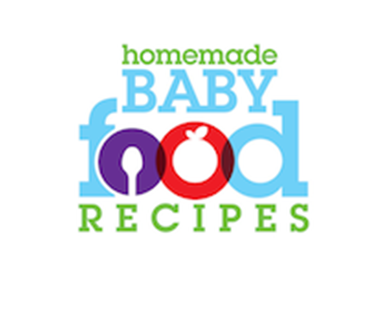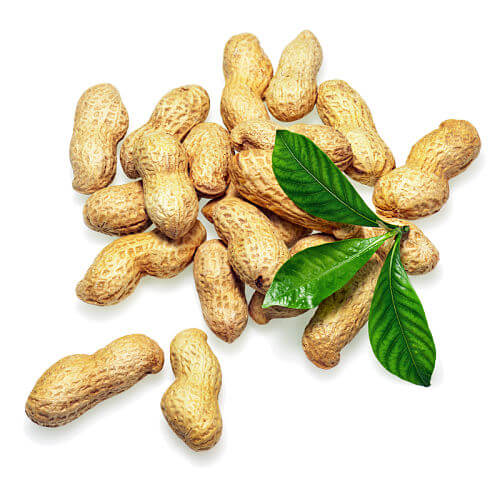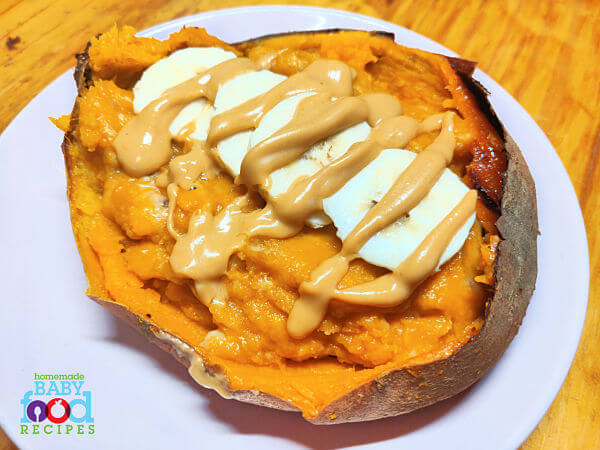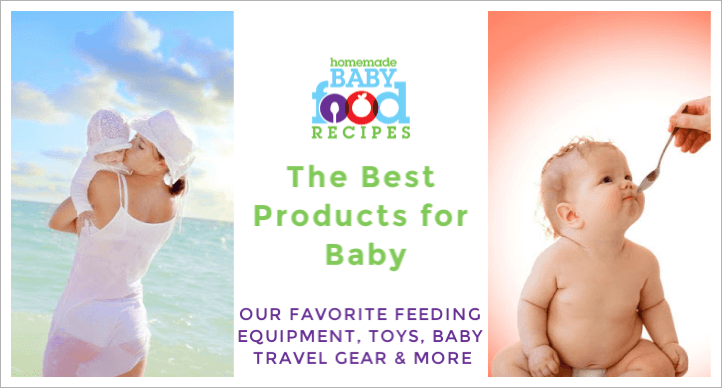When Can Baby Eat Peanuts?
New Guidelines Introduced
Updated: Nov 4, 2023
For many years parents were told not to give peanuts or peanut-based foods to children under 3 years of age, with some experts even recommending waiting until age 5.
One of the main reasons was the concern that peanuts could cause a serious allergic reaction and trigger a lifelong nut allergy.
More recently, those rules were relaxed considerably, although parents have still been vary wary of introducing peanuts during infancy.
But new research has led to new guidelines, and medical experts in the US are now recommending that most babies are given foods containing peanuts WELL BEFORE their first birthday.
This is because studies have shown that early exposure to peanuts significantly REDUCES the chances of a nut allergy developing.
Dr. Matthew Greenhawt, one of the authors of the guidelines, said
We’re on the cusp of hopefully being able to prevent a large number of cases of peanut allergy.
Why have the guidelines for introducing peanuts been changed?
The new recommendations for the introduction of peanuts were produced by the US National Institute of Allergy and Infectious Diseases, part of the National Institutes of Health (NIH).
The guidelines were drawn up following the results of a large scale UK study called LEAP (Learning Early About Peanut Allergy).
The study involved 600 babies aged 4 to 11 months, with egg allergy, severe eczema, or both.
Some of the babies were fed no peanut-containing foods at all, whilst the rest were fed diets that regularly included at least 6 grams of peanut protein per week.
This continued until the children were 60 months old, at which point they were assessed for a peanut allergy.
The results were significant, showing that the regular inclusion of peanut-containing foods in the diet from an early age reduced the risk of developing peanut allergy by 81%.
A group of 26 experts then met and used the available research – plus their own expert opinions – to produce the current guidelines.
So when should baby eat peanuts?
First and foremost, it’s important to discuss the introduction of any new foods with your child’s doctor.
He/she is familiar with your baby’s medical history, which may affect the timing of the introduction of new foods.
In general, however, the new guidelines are as follows:
If your baby has an existing egg allergy, eczema, or both…
Then peanut-containing foods should be introduced from 4 to 6 months of age, with the agreement of – and under the supervision of – your child’s doctor.
(NOTE FROM EDITOR: Some parents may find this a contentious issue and may not be happy to introduce ANY solid foods – let alone peanuts – as early as 4 months (please see this page, which discusses when the early introduction of solids may be necessary).
That being said, it seems that this early introduction of peanuts to babies in the ‘high risk’ group is key to the prevention of nut allergy.
This is, therefore, a matter to discuss very carefully with your child’s doctor, drawing his/her attention to these guidelines if necessary).
If your baby has mild to moderate eczema…
You should introduce peanut-containing foods at 6 months of age.
If your baby has no history of food allergy or eczema…
You can freely introduce peanuts along with other new foods.
In all cases, you should offer other foods BEFORE peanut-containing foods, to make sure your little one is developmentally ready for solid foods at all.
UK guidelines
Even though this was a UK study, the current guidelines have only been issued in the US.
UK guidelines still recommend that
- You discuss the introduction of peanut-containing foods with your doctor if your baby already has an allergy, or if there is a family history of allergy.
- You introduce peanut-containing foods at 6 months if there is no history of food allergy or other allergy in your family.
IMPORTANT NOTE: Peanuts are not suitable for babies with G6PD deficiency .
Please see this page for more information.
Peanut baby food ideas
Whole peanuts, of course, present a choking hazard and even smooth peanut butter can be rather dense for a baby to manage.
So here are a few ideas for including peanuts in your baby’s diet…
- Stir smooth peanut butter into applesauce, banana or natural yogurt.
- Stir smooth peanut butter into baby’s rice cereal, oatmeal or cooked barley cereal.
- Mix peanut butter into pancake or muffin batters (or try these Banana and Peanut Muffins – they’re easy to make, super-soft to eat and VERY yummy!)
- Blend peanut butter with frozen banana to make a simple, tasty banana ‘n peanut ice cream!
NOTE: Look for 100% peanut butter, preferably with no salt, sugar or preservatives. In other words, it should ideally be just peanuts!
This can be tricky to find, and quite expensive when you do!
Another option is to invest in a good blender and make your own nut butters.
A blender capable of grinding nuts to a smooth paste can be quite an investment initially.
Nevertheless, a powerful blender can take on a whole range of tasks in the kitchen (some even enable you to make your own flour!), so it might be an expense worth considering.
from our blog...
Best blenders for homemade nut butters
We use a Vitamix to make peanut butter, which we love but have to admit comes with a hefty price tag!
Somewhat cheaper is the Blendtec Designer Series Blender which does an awesome job in preparing homemade peanut butter. If that’s still above your price range, then we recommend the Ninja Blender 1200 which we have found to be great value for money and more powerful than other blenders in this price range.
Ninja Blender 1200
Sources:
National Institutes of Health – Study finds peanut consumption in infancy prevents peanut allergy
Randomized Trial of Peanut Consumption in Infants at Risk for Peanut Allergy
Effect of Avoidance on Peanut Allergy after Early Peanut Consumption
More articles and recipes…
Banana baby food – information, tips and recipes



